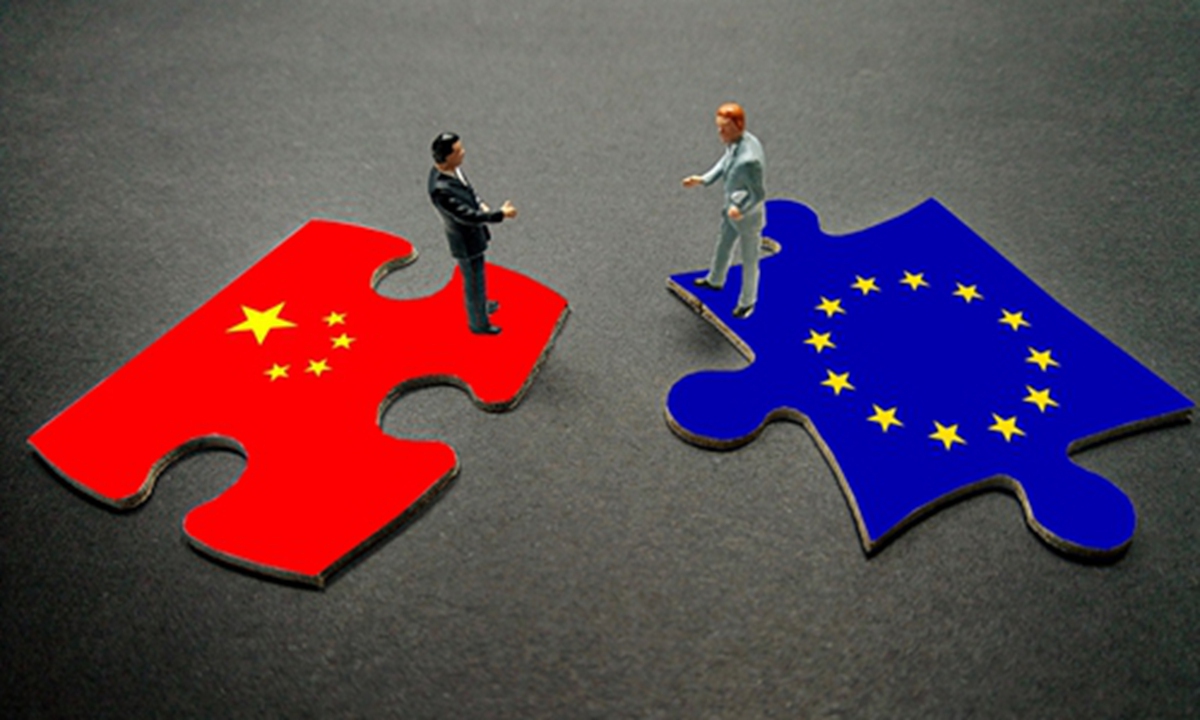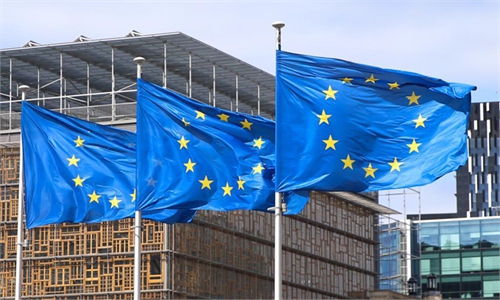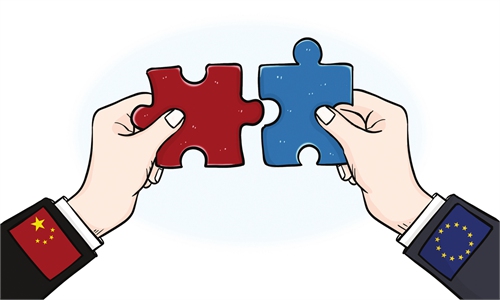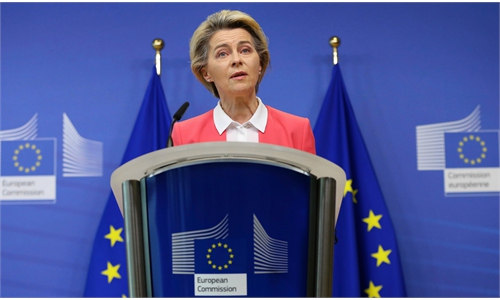Borrell sends EU's healthy voice to strengthen China ties, linking Global Gateway to BRI

China-EU relationship Photo: VCG
Chinese observers have welcomed the healthy voice within the European Union (EU) after EU foreign policy chief Josep Borrell said that both sides want to strengthen bilateral relations, as such voices could help build forward-looking, pragmatic, and mutually beneficial relationships, in order to promote a more balanced development of the international order.
After what Borrell described as "good call" with Chinese Foreign Minister Wang Yi on Sunday, the High Representative of the EU for Foreign Affairs and Security Policy posted Monday on X, formerly known as Twitter, that he and China's senior diplomat Wang Yi both want to strengthen EU-China relations. "We discussed the upcoming Strategic Dialogue in Beijing in preparation of the EU-China Summit," Borrel said.
According to the Xinhua News Agency on Sunday, Wang Yi, also a member of the Political Bureau of the Communist Party of China (CPC) Central Committee, said during his phone call with the senior EU official that China and the EU should conduct more institutional dialogues to inject new and strong impetus into the China-EU comprehensive strategic partnership.
Borrell stressed that he looks forward to visiting China as soon as possible and launching a strategic dialogue with the Chinese side to jointly prepare for this year's EU-China leaders' meeting and to promote the further development of EU-China relations.
Wang noted that China welcomes Borrell to lead a delegation to visit China this fall and hold a strategic dialogue to make political preparations for the China-EU leaders' meeting through extensive and in-depth exchanges.
Besides healthy voice that stresses EU's strategic autonomy and the region's own interests, there are also words and actions led by pro-US forces within the EU that advocate blindly following the US in disregard of Europe's own interests, such as Ursula von der Leyen, Li Haidong, a professor at the China Foreign Affairs University, told the Global Times on Tuesday.
The vehemently pro-US European Commission chief used a speech in Manila on July 31 to take aim at China, accusing China over the Ukraine crisis and China's "show of military force" in the South and East China seas, and in the Taiwan Straits, news outlet Politico reported.
EU leaders also launched a "de-risking" policy targeting China on June 30, after Von der Leyen went into a summit of leaders in Brussels, the Guardian reported. The bloc reportedly took the view that supply chains for chemicals, electric vehicle batteries, semiconductors and many other critical products were especially vulnerable to a severing of ties with Beijing.
Von der Leyen told reporters after the summit that "diplomatic de-risking" was central to the bloc's approach, which allowed the EU to be tough on China over issues such as Russia but at the same time leaving channels open for trade and for dialogue on concerns such as global heating, according to the Guardian report.
Wang Yiwei, director of the Institute of International Affairs at the Renmin University of China, criticized the de-risking rhetoric proposed by the pro-US Von der Leyen as exactly what is leading to greater risk.
Healthy voices would not only make the EU a respectful power in international affairs, rather than being deemed as a subsidiary to the US, but also help build forward-looking, pragmatic and mutually beneficial relationships with China, in order to promote a more balanced development of the international order, Li said.
The blindly pro-US path would gradually cost Europe's own interests, he warned.
During his phone call with Wang Yi, Borrell stressed that the EU's Global Gateway strategy and the Belt and Road Initiative (BRI) are not rivals but complementary to each other, as both are aimed at promoting global development, Xinhua reported.
By making such remarks, Borrell is not only sending a friendly signal to China, but also conveying an opposing voice against the so-called "de-risking," Wang Yiwei said, while warning that Europe would only fall victim if it continues using the label "de-risking" to create confrontations.
Borrell is also using such words to offset the pressure the US levied over Italy recently to push the latter to exit the BRI, according to Wang Yiwei.



